Last updated on November 30th, 2023
Five ways women can shift stereotypes about age
By Carolyn Ray, Editor, JourneyWoman
Two years ago, when Diana Eden was turning the milestone age of 80, she met with her then 39-year-old financial advisor to budget for her celebratory trip. What followed was a conversation that many of us can relate to, which Eden shares in her article “Life Doesn’t End at 80, Neither Does Travel”.
She writes: “When he said: ‘Well, you probably won’t be traveling much anymore,’ I wondered if he had some premonition of a worldwide pandemic that would end my traveling days. But no, he was referring to MY AGE, as the trip I was financing was to celebrate my 80th birthday. In his tunnel-visioned youth, he was unwittingly relegating me to life in the rocking chair. Not me! I flat-out refuse.”
Diana’s story is just one example of the bias that women experience as we age. Rather than being revered for our wisdom and experience, older women are often dismissed as an inconvenience. It’s apparent in the language, the way women are treated and the stereotypes that exist. Rather than being recognized for our stature and status, we are diminished for our calendar age or appearance.
Anyone who has been discriminated against knows how bias and stereotyping can affect our self-image and mental health. An AARP survey conducted in 2022 found that two out of three women over 50 experienced age-related discrimination. Age discrimination against older women is particularly harmful because women are more likely to live longer, more likely to be widowed, and more likely to have increased healthcare needs than men.
Even though men are discriminated against too, women experience aging and its impact differently, according to a UN Advocacy Brief. “Gender-based discrimination ultimately creates stereotypes and sexist attitudes that are compounded with assumptions about later life, such as frailty, dependence, lack of ability, and passivity. Other intersectional factors, such as race, ethnicity, sexual orientation, gender identity, religion, national or social origin, or other status, exacerbate the risk of gender inequality and discrimination in later life.”
“Older adults now have the most diverse life experiences of any age group. Some are working, some are retired, some are hitting the gym every day, others suffer with chronic disabilities. Some are traveling around the world, some are raising their grandchildren, and they represent as many as three different generations. There’s no one term that can conjure up that variety.”
—Ina Jaffe, a reporter at NPR who covers aging (Source: The Atlantic, January 2020)
What ageist sterotypes mean for travel
In our recent study, “The Influence and Affluence of Solo Women 50+ in Travel” we asked mature women if they feel seen and understood by the travel industry. The results are shocking — 70% of respondents say the industry ignores their needs or is indifferent to them. Of the 1,000+ women who responded, almost 90% of them are women over 50, and 15% of those are women over 75. The majority of respondents were widowed, divorced or single — and 96% of them make the travel decisions in their households.
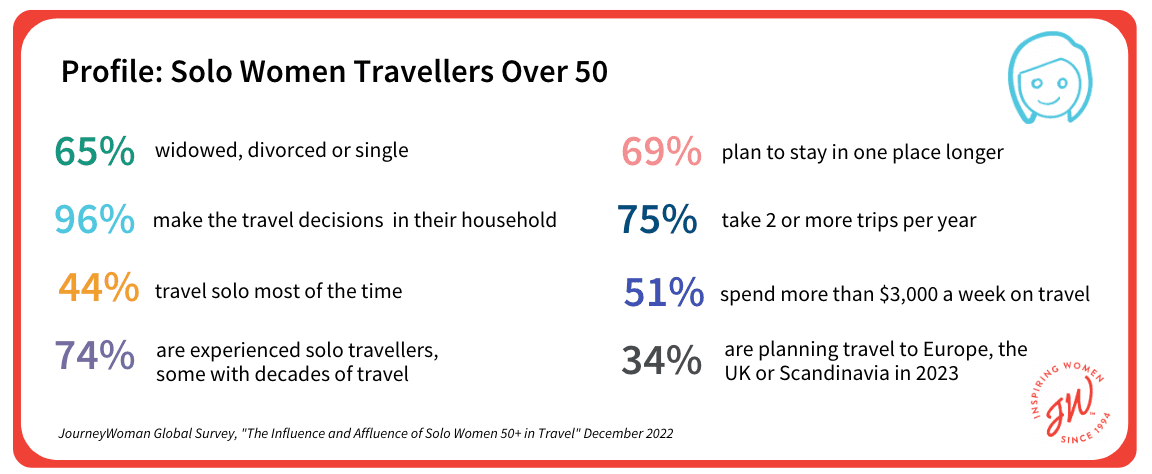
Whether it’s the premium we pay to travel alone, the stereotypical terminology or the shortage of photography that shows mature, adventurous women as we truly are — it’s time for change. And it starts with us.
Looking for inspiration? Stop by our “Older Adventuress” section here
Five things we can do to shift perceptions about age
Talking about bias is emotional. It attacks our core, our confidence and our integrity. It can be hard to recognize, and even harder to talk about. But we must if we are to change it.
The words we use matter. Terminology drives perceptions and affects how we view ourselves. Stereotypes can also create division between generations and devalue or limit our ability to contribute to important conversations.
1. Stop using ‘female’ as a qualifier
Noting modifiers can also limit our influence as women. When I worked in consulting, some of the leaders I met were called ‘girls’. Women aren’t interlopers in travel. Why do we need to say ‘female solo traveller’ or ‘female leader’ or ‘female doctor’. Just doctor will do.
Despite women travelling solo for decades, we still hear comments that would never be said to a man.
In our Facebook group discussion on this topic, Kitty Panza said: “I don’t like the comments like ‘oh, how brave you are’ or ‘aren’t you afraid by yourself?’. I doubt those are said to a man travelling solo.”
Sue VanSchoyck Skelly, who operates walking tours around the world, says: ” In 2019, I walked from the Swiss border to Rome. The concept of a woman walking the trail, staying in rooms and eating alone confused SO many men.”
2. Use adjectives that empower women
As part of our recent study, we invited women to share their top dream experiences – and let’s just say the list made even me rethink my bucket list.
When it comes to dreaming big, women over 50 are looking to the future with purpose and intention. No sitting on the beach for us – we’re hiking, biking, climbing, jumping, kayaking, exploring and trekking. And if we’re not doing that, we’re sleeping under the stars, hot air ballooning and sky diving.
Joy Fox, 87, recently returned from a multi-week trip to Spain, performing across the country as part of a choir group.
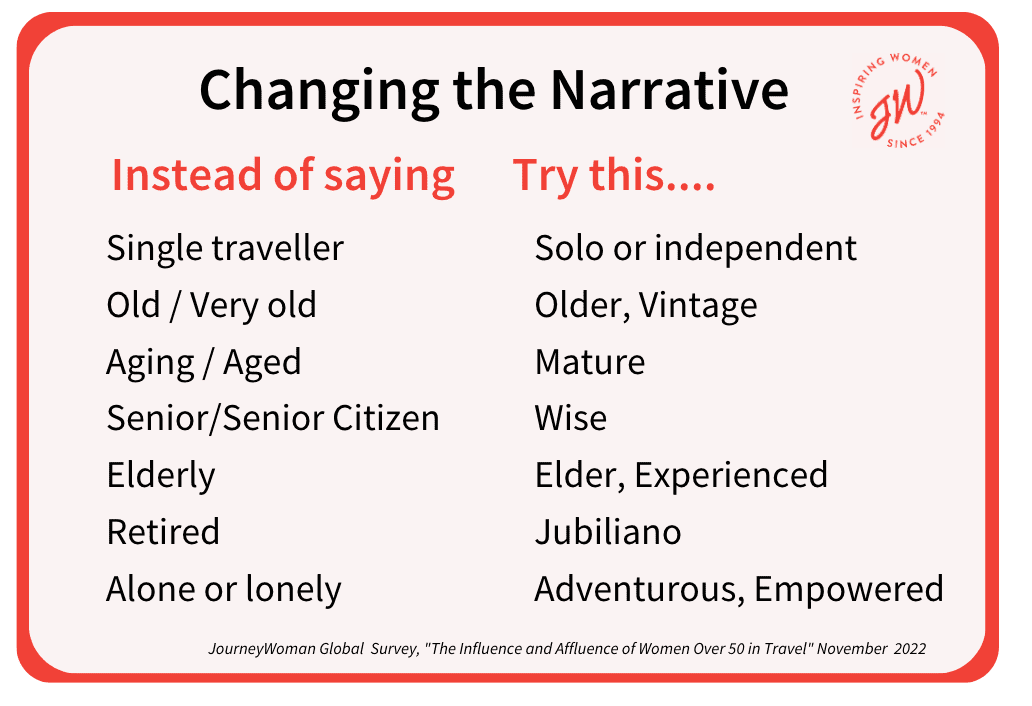
0”The world really has not kept up with us,” she says. “We take good care of ourselves, look and feel vibrant and adventurous and attempt things just because. So why not use us to demonstrate how great life is. JourneyWoman does this — so could others.”
Here are some empowering words that I love when writing about mature women: adventurous, courageous, ambitious, accomplished, independent, determined, focused, deserving, free, wise, empowered.
3. Describe us as ‘Solo’ or ‘Independent’, not ‘Single’ when referring to solo travellers
Most women in our Facebook group say they prefer being called ‘solo’ or ‘independent’ travellers, not ‘single’.
“I don’t mind solo traveller, but I also like seasoned traveller, or savvy traveller,” says Julie Iuvancigh. “That doesn’t take into account those who are just starting to solo travel and may not be experienced or savvy, however.”
“I don’t mind solo, but would prefer “experienced warrior queenager!” says Joy Fox.
The use of ‘singles’ also extends to tour marketing. As an independent woman who travels solo, I find the idea of ‘singles tours’ confusing. I’m not travelling to find a date. I much prefer the idea of women-only tours, like those featured on our Women’s Travel Directory. What do you think?
4. Use the word “Senior” with respect and avoid ‘Old’ and ‘Elderly’
Travelling in Europe for the past few months, I’ve been taking note of how ‘seniors’ are treated. As an accredited travel journalist, I am sometimes offered complimentary passes to museums. Yet ‘seniors’, or those over 65 must pay a fee, and sometimes it’s only a few euros off the full-price admission. Some cities, like Prague, offer people over 70 free public transit. Yet it’s not consistent. Why wouldn’t every city in the world want to offer incentives to the most affluent, most influential travellers? Wouldn’t this encourage more museum visits and use of public transit?
In many countries, older women are revered. Brenda McCrank, 70, says, “I was treated with more respect in Japan, Malaysia and Singapore, often because of my age and experience. Eastern culture tends to appreciate the riches of elder wisdom. In my experience, this respect isn’t found in specific countries per se. It’s based on culture and values within the multiple cultures that reside within a country. Here in Toronto, I was privy to great respect given women elders while working with Indigenous rights activists during invitations to healing sweats extended to friends of those working in the government on human rights, the result of which is mostly preserved in oral tradition.
Jo Anne Wilson doesn’t mind the word ‘senior’ but says we need to own it. “It’s up to us to claim the distinction and start using it with pride and power and wisdom. When we are school kids in high school, we strive to be seniors and the seniors claim their spot at the top of the pyramid. The same holds true in post-secondary education. Being a senior is something to be proud of and to strive for. Doesn’t the same hold true for the greatest education and challenge of all – life itself?
We, who are seniors, may have issues but we are the lucky ones. We’re here because we have somehow had a winning combination of the right genes, good luck and some wise living (although – bless our younger years, not always). We should not cave to ageism in the media and in society. We should proudly proclaim our “seniorness”. I am old enough to remember when being called a feminist was a slur, yet, we persisted and sometimes shouted “I am a feminist” above the heckling and the boos. Now, even men call themselves feminists. I don’t succumb to the challenges of aging and do what I can to keep my body and mind as active as I can, but I am a senior, proud of it, call myself that and am grateful that I am still alive and able to claim every year, wrinkle and gray hair.”
Avoid ‘Old”: “The word ‘old’ does describe some people my age, but it does not describe me. I am still young inside – my actual age makes no difference – it is a social classification only, a number on a piece of paper. I retired from a government job at 55, started a business and formed an association in my sixties, which is still going strong 26 years later,” says Fox.
Avoid Elderly: Fox says she hates the word ‘elderly.
“I don’t mind the word ‘elders’ as in ‘the people came to hear what the Village Elders had to say’,” Eden says. “Makes us seem wise as well as old, which of course we are. I’m okay with the term ‘elder’ when it is used as a term of respect.”
Try Wise: “While the word ‘senior’ has long been used to describe those over 60 or maybe younger, there has to be a word that speaks to the accumulation of experience and wisdom we have amassed in our lives,” says Fox.
Try Vintage: “One alternative to ‘old’ might be the word ‘vintage’. The word vintage literally means “of age,” says Eden. “As for showing vintagers like us in advertising and editorial, I don’t mind if there are not a large number of photos of us romping on the beach, as long as there are some. Let’s be real, I like to look at robust and attractive people of all ages and genders.”
Try Mature: “Age is not a factor in my choices, so I don’t want to be seen as senior, old, or a pensioner, or God forbid, elderly!” says Fox. “Call me mature, experienced or vivant, but not old aged. I admit to being in the winter of my life and I like the use of the seasons used in a life span.”
“I don’t succumb to the challenges of aging and do what I can to keep my body and mind as active as I can, but I am a senior, proud of it, call myself that and am grateful that I am still alive and able to claim every year, wrinkle and gray hair.”
—Jo Anne Wilson, JourneyWoman reader
5. Use more inclusive, age-appropriate photography
As a publication focused on mature women, it can be challenging to find images of diverse, adventurous older women alone when searching stock photo libraries. Even the keywords to find age-appropriate images, like ‘old’ and ‘alone’ are not empowering. Occasionally, a woman standing alone is called ‘lonely’ or ‘sad’. I often think of a tree as a metaphor for wise women. Like us, a tree standing alone in the wilderness is not a lonely, sad tree. It is a strong, resilient tree that holds wisdom, provides shelter and is connected to every living thing.
One of my goals for 2023 is to develop JourneyWoman-specific photography that shows women as we truly are – courageous, adventurous and comfortable in our own skin. Our “Limitless Accessibility” group is also working on practical ideas about how we can reflect the needs of women with mobility challenges in our photography and editorial.
Changing stereotypes starts with us. Let’s choose our words carefully and consider the consequences of what we say and how we act. When we speak with authority, confidence and conviction, the world will listen.
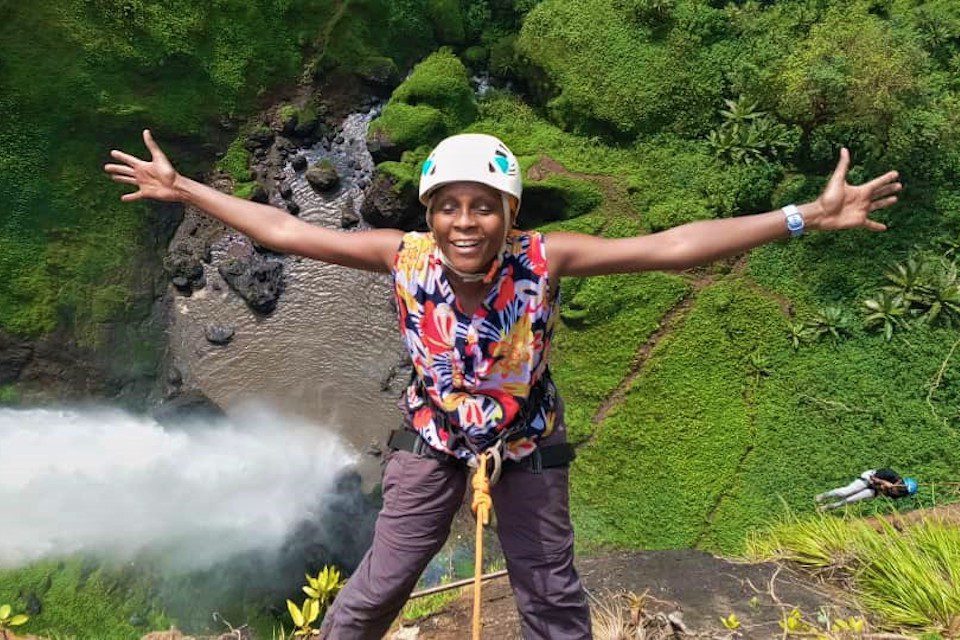
Changing perceptions on age starts with us
Watch this TED Talk: “How to live passionately—no matter your age”
Author Isabel Allende is now 80, but filmed this talk when she was 71. Yes, she has a few wrinkles—but she has incredible perspective too. In this candid talk, meant for viewers of all ages, she talks about her fears as she gets older and shares how she plans to keep on living passionately.
We’re reading her book “Eva Luna” for our February 15 Book Club. Join us!
Read More on Travel for Women Over 50
Why It’s Never Too Late: Reinvention at Any Age
It’s never too late to embrace reinvention at any age, as travel writer Leyla Alyanak, 70, is still discovering as she looks for new adventures.
Solo Travel for Seniors: How to Overcome Fear and Get Started in Solo Travel
If you’re a senior woman hesitant about solo travel, here are expert tips to get started and face your fears.
Navigating Doha and Qatar Airways: A Wheelchair User’s Accessible Travel Adventure
Is Doha accessible to wheelchair users? Tanzila Khan finds that a 15-hour stopover becomes a memorable adventure, leaving behind a trail of empowerment and advocacy.

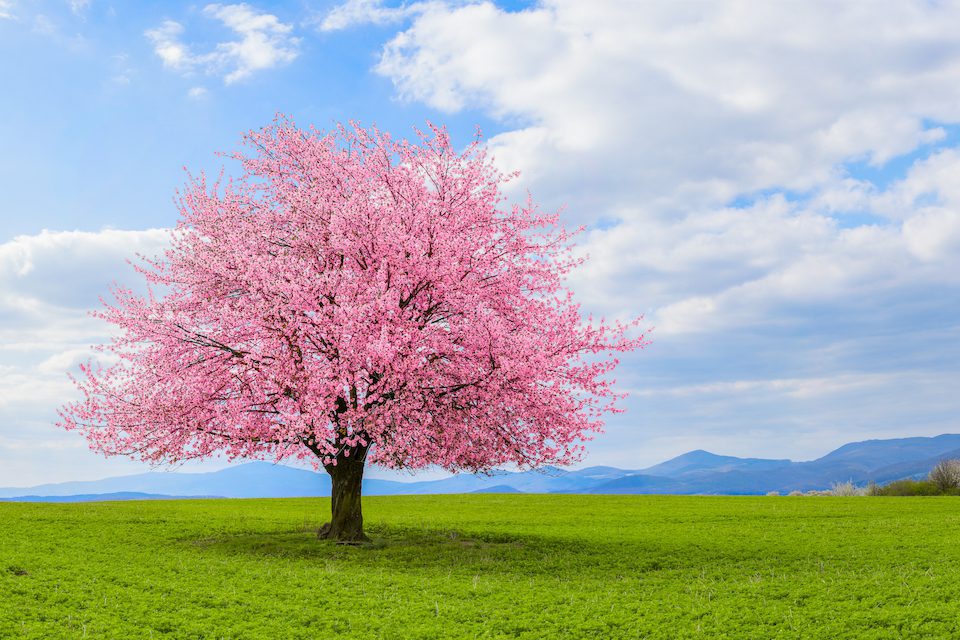

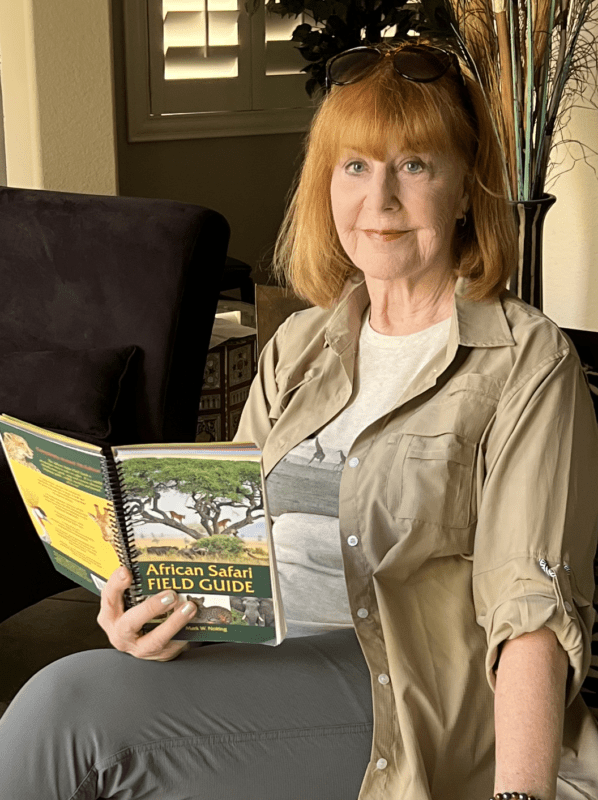
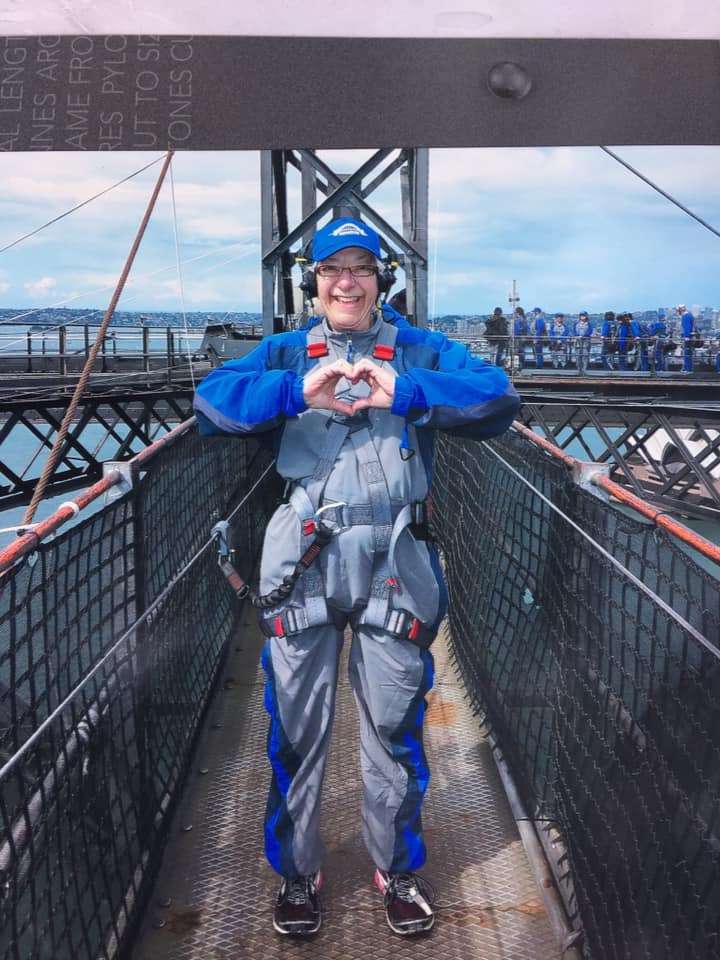
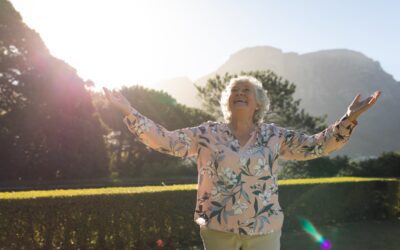
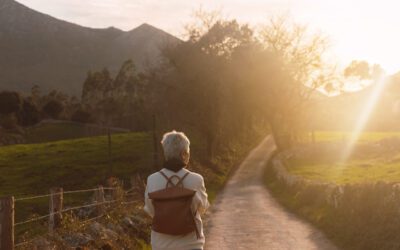

Thank the goddesses for giving a voice to us mature independent travelers. I’ve been traveling for many decades, fast approaching 80, and have recovered from the black hole of lockdown. On the road again.
I thoroughly enjoyed this article about age and travel. I wholeheartedly agree with it. I am 75, will keep travelling as long as I am healthy and applaud women who do the same. I especially liked the comment from the 80 year old whose financial advisor thought she would ‘slow down’ when she reached 80. I do not think of my age, only my ability to enjoy life, travel and everything in between. I take one day at a time and hope I am still OK tomorrow. So far, so good. I have a trip planned for Switzerland this summer and just signed up for a trip to Egypt, Israel and Jordan in February 2024. I enjoy Journey Woman and keep up the good work and information. Take care.
The word “old” doesn ‘t need to be avoided, just
redefined.